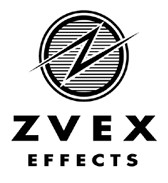History
In 1994, Vex left his job as a recording engineer due to tinnitus and was soon evicted from his apartment. With relocation money from the Minneapolis Community Development Agency, he found a new apartment and turned to pedal-building after finding the schematic for a 1960s Shin-Ei Apollo Fuzz Wah printed on the inside of its casing. [2] Vex built his own, but found the result uninteresting. With several circuit modifications, he had his first pedal, the Octane, an octave-up fuzz that he sold three of to a local dealer, who just wanted Vex to leave the store. The dealer subsequently encouraged Vex to keep building pedals and asked for another design, which Vex had to create overnight because his relocation money had run out. The result was the Fuzz Factory, a five-knob fuzz pedal design capable of a large array of unique sounds for a fuzz. [2]
Vex founded Z.Vex Effects in 1995, with the Octane as the company's first offering. [3] Unable to afford silk screen printing that other pedal-makers used, Vex turned to his then-girlfriend to paint the pedal casings by hand, which she did for the first year or so. Z.Vex's Minneapolis-made pedals continue to be hand-painted by an employee, with "beautifully-crazy" graphic design work serving as a hallmark for the brand since its beginning. [2] The popularity of the Fuzz Factory upon its release established Vex as a pioneer in the boutique pedal industry. [2]
Other products
The company also manufactures a Probe line of effects (the Fuzz Probe, Wah Probe and Tremolo Probe) that are modified versions of other pedals the company makes. What makes this series of pedals unique is the copper plate, which has an antenna underneath it that senses how close your foot (or something else) is to the pedal, giving you the ability to manipulate an aspect of the pedal's sound. From the company's website:
"The probe circuit generates a small (one or two inches high) 'bubble' of RF energy at about a million cycles per second above the copper plate. As your foot or hand (or any wet or metallic object, for that matter) approaches the copper plate, the RF field is disturbed and the circuit reacts by increasing the brightness of an LED, which drives a photoresistive cell and controls the circuit." [7]
This page is based on this
Wikipedia article Text is available under the
CC BY-SA 4.0 license; additional terms may apply.
Images, videos and audio are available under their respective licenses.
